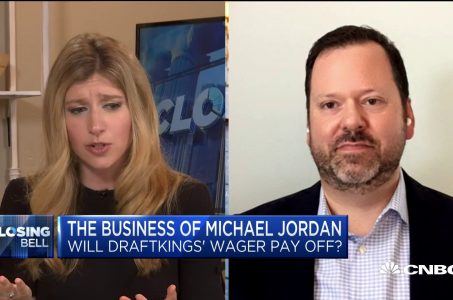Slot Machine Near Misses Do Not Lead to Continued Play by Gamblers: Study
Posted on: September 30, 2019, 06:10h.
Last updated on: September 30, 2019, 10:12h.
Gamblers who come close to winning on slot machines — but narrowly lose — are not motivated to keep playing the game, according to a new Canadian study.

For instance, someone who winds up with two lemons and a cherry on the reel is not more likely to take another try than if the gambler got one each of a lemon, cherry, and a third fruit symbol.
The finding is contrary to widely held assumptions that gamblers who come close to winning are motivated to keep trying. They may feel lucky because they came so close.
University of Alberta researchers who tested pigeons and reviewed human behavior were not able to find clear support for what they describe as a “near miss effect” and persistent play.
This is the widely held belief that near miss events reinforce continued play on slot machines,” said Jeffrey Pisklak, a researcher on the study, to Casino.org. In casino games, such as slots, a near miss where, for instance, a cherry, cherry and lemon display on the reels, “is a random event and can’t be used by the player to improve their odds of winning,” he said.
Generally, he explains, a near miss is a “consequence that suggests to a player that they have almost achieved some desired result.” An example used in the study is making free throws at basketball.
“If you throw the ball and it almost ends up inside the hoop — perhaps by rolling off the rim — you might consider that a near miss,” Pisklak said. “That is different from throwing the basketball and not hitting the rim at all.
“Events like this give important information to the player that they can use to adjust their technique and make getting the ball through the hoop more likely,” Pisklak added.
While researchers say gamblers who experience near-miss events will not be motivated to continue gambling, “That doesn’t mean near misses aren’t affecting their behavior in other ways,” Pisklak notes. For instance, it may alter the amount a gambler chooses to bet, or which games the gambler might choose to play, he said.
Unsure of Impact on Gaming Venues
It is not as clear what impact the finding has on casino management. “We know casinos conduct their own research and have access to data many researchers could only dream of obtaining,” Pisklak said.
If near misses do not reinforce the frequency of gambling, there is a strong possibility that casinos and slot manufacturers already know this, and have some other reason for making these events so prominent on their machines. But perhaps not.”
As far as problem gambling, a lot of resources are used to study the effect near misses have on neurology or emotional responses. Near misses impact brain activity and heart rate.
“Much of this is done under the assumption that near misses are contributing to increased amounts of play,” Pisklak said. “If that assumption is not justified …, then it may mean that a lot of research is potentially superfluous. For instance, factors such as the schedule of reinforcement the games’ run on, and how this schedule interacts with a phenomenon known as hyperbolic delay-discounting, is potentially a much more promising line of research in terms of understanding how casino games come to control behavior so effectively.”
Pigeons Highly Impulsive
The researchers used pigeons in the study because pigeons, more than most lab animals, have steep rates of “reinforcer discounting.” That means they are highly impulsive.
“Steep rates of discounting is a trait shared by problem gamblers, as well as substance abusers more generally,” Pisklak said. “This, combined with numerous other factors … means we can get a pigeon truly addicted to the task in a way that would be unethical to do in humans. Pigeons are, in some sense, nature’s version of a problem gambler.”
The pigeons were tested to see if there was more pecking in consecutive order to get food after a near miss.
The research team recently published its article, “The Near-Miss Effect in Slot Machines: A Review and Experimental Analysis Over Half a Century Later,” in the Journal of Gambling Studies.
In contrast, Stockton University’s Lloyd D. Levenson Institute of Gaming, Hospitality and Tourism (LIGHT) found among college students that 41 percent of those responding said they find gambling interesting or exciting, while 46 percent said they are not interested or completely not interested. Twelve percent said they weren’t sure.
Related News Articles
UK’s National Health Service Breaks Up with the Gambling Industry
YouGov Survey Shows Americans Concerned About Sports Betting Ads
Most Popular
LOST VEGAS: ‘Tony The Ant’ Spilotro’s Circus Circus Gift Shop
Las Vegas Overstated F1 Race’s Vegas Impact — Report
Mega Millions Reportedly Mulling Substantial Ticket Price Increase
Las Vegas Strip Stabbing Near The Strat Leaves One Man Dead
Most Commented
-
End of the Line for Las Vegas Monorail
— April 5, 2024 — 90 Comments -
Mega Millions Reportedly Mulling Substantial Ticket Price Increase
— April 16, 2024 — 8 Comments -
Long Island Casino Opponents Love New York Licensing Delays
— March 27, 2024 — 5 Comments
















No comments yet